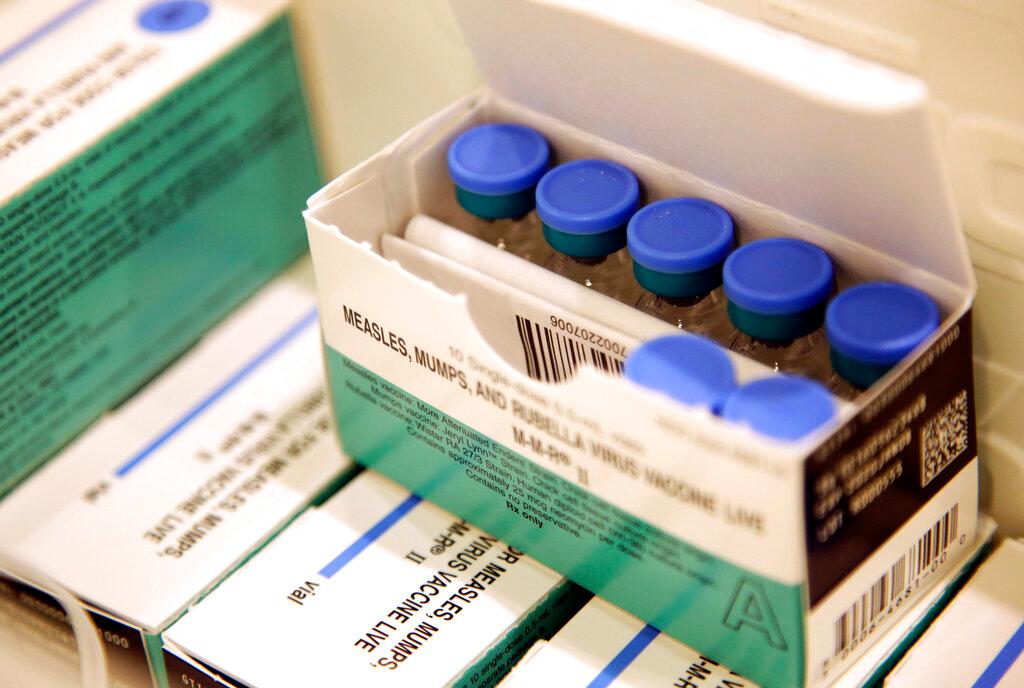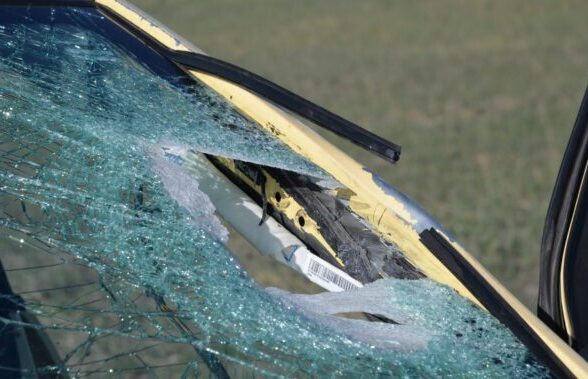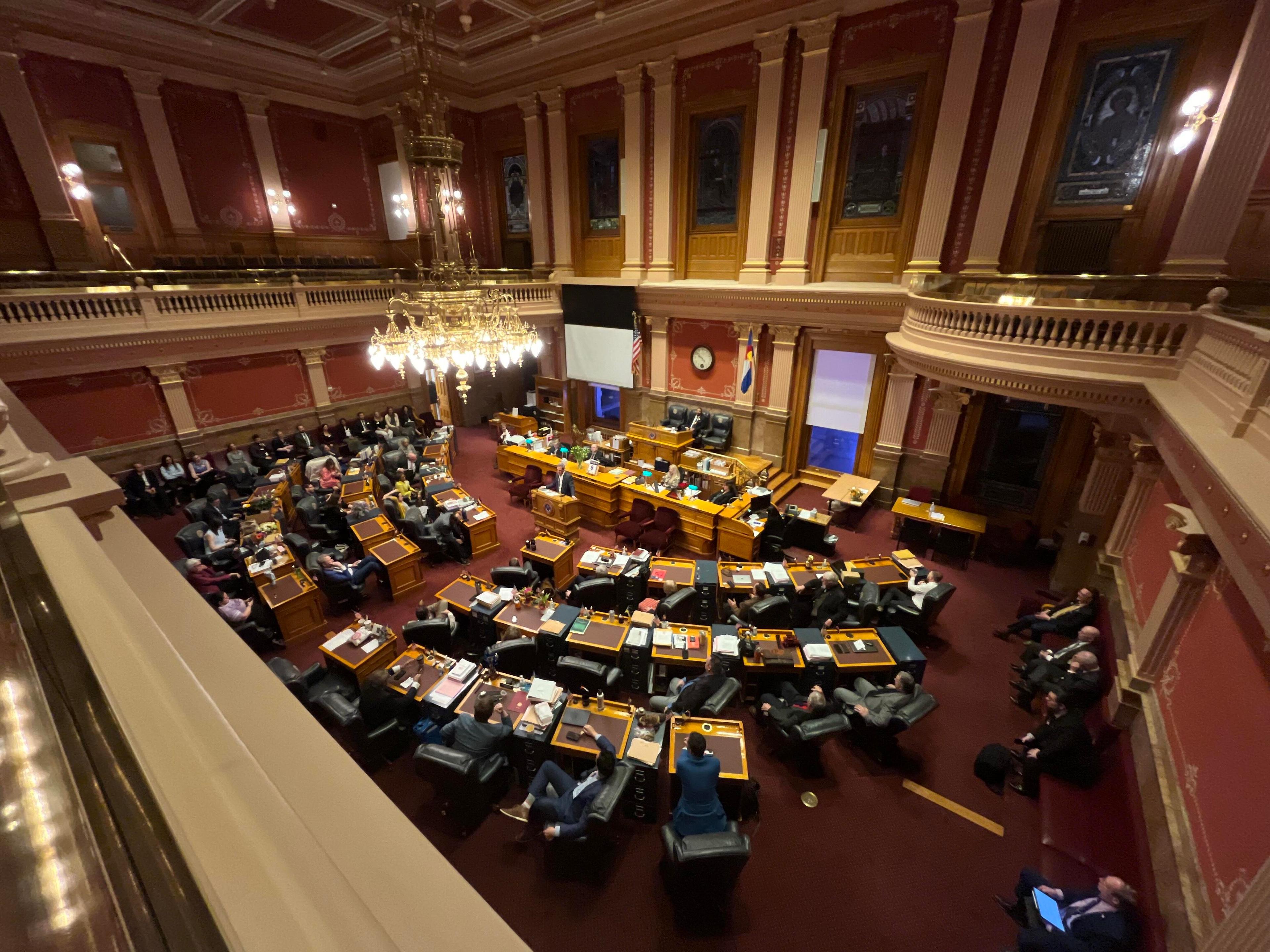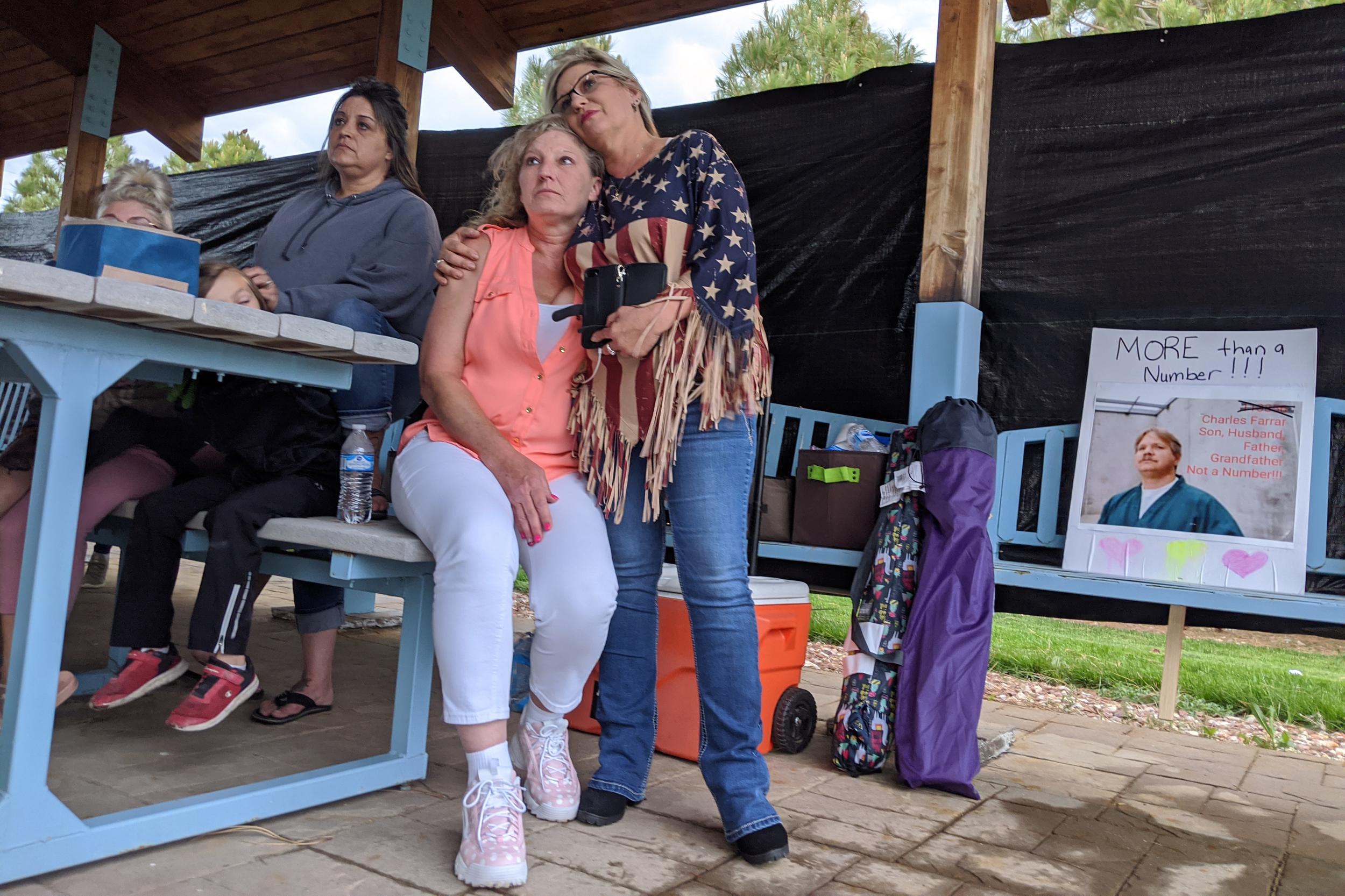
The Sterling Correctional Facility sprawls across the prairies of Northeast Colorado.
After a storm passed through last Saturday night, the families of a handful of inmates lined up facing the razor-wire fencing. About a dozen women waved signs and electric candles toward the cell blocks in the distance. Kids blinked lanterns off and on.
And after a few minutes, the windows of the prison started flickering, too.
Raeleen Woodbury, who arranged the vigil, said those flashing windows made her drive from Tennessee more than worth it. Her son is one of the about 2,200 inmates inside the Sterling Correctional Facility, which is both Colorado’s largest prison and the state’s largest known coronavirus outbreak.
She hasn’t seen him since just before the pandemic ended visitations in early March.
“You can touch somebody’s heart without ever touching their body or holding their hand,” she said. “That’s what we’re doing out here.”
Woodbury planned the vigil after public health officials announced a third inmate had died from complications due to COVID-19. The Department of Corrections is waiting for an autopsy to update its death count, but the Colorado Springs Gazette reports Michael Nunez, a 48-year-old inmate, died after suffering symptoms consistent with the respiratory disease.
While Colorado’s total coronavirus cases have declined in recent weeks, outbreaks inside Colorado’s prisons and jails have continued to grow. In the Sterling Correctional Facility, 561 inmates have tested positive for the virus according to the latest data from the Colorado Department of Public Health and Environment. That’s up by 120 from late last month, but the prison reports only two additional positives in its latest round of testing.
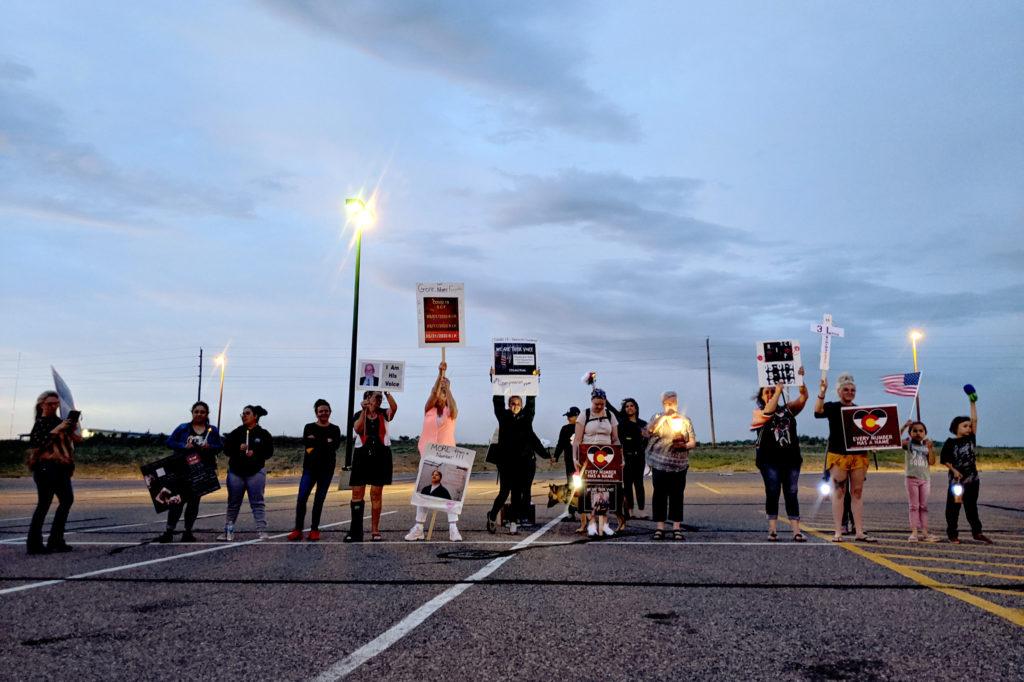
The decrease in new cases could be because of aggressive efforts to control the outbreak. The prison has administered more than 4,000 tests, according to a spokesperson with the Colorado Department of Corrections. Some prisoners have been tested multiple times.
Anyone who tests positive is held in a separate wing of the prison. The entire facility is under a Phase 3 lockdown order, which means inmates can only leave their cells to shower or go to the bathroom. Prisoners can use phones so long as they are sanitized between uses. Inmates who have recovered from the virus can use the dining hall, but staff delivers the rest of the meals.
Ahead of the vigil, Sterling Warden Jeff Long visited families as they ate sandwiches and signed posters with notes for their loved ones. Woodbury said she was initially unsure about holding the event because it could be perceived as a political protest instead of a show of support for inmates and staff. She came around after Long invited her to hold it just outside the prison walls.
“He came to us,” she said. “That was bigger than anything I could have imagined.”
While Long would not be interviewed or give his own comments to the families, he did read a statement from Dean Williams, executive director of Colorado’s Department of Corrections. It assured the families each inmate would be treated as someone’s son or husband rather than a number.
“If the pandemic had to hit a prison, I'm so grateful to have a man like Warden Long at the helm,” Long read from William’s statement. “If he is blushing because I made him read that, just know that it's true no less.”
Debbie Farrar is confident the prison is doing what it can to protect inmates, but she would much rather her husband, Charles Farrar, walk free. He is serving a 145-year sentence for child sex abuse charges even after his accuser recanted her story. The story was well-documented in a feature for Westword.
For years, Debbie Farrar and her husband have fought to have his case reopened. She worries the pandemic could now render the whole effort meaningless. Her husband suffers from high blood pressure, which has been found to significantly increase the risk of death in coronavirus cases.
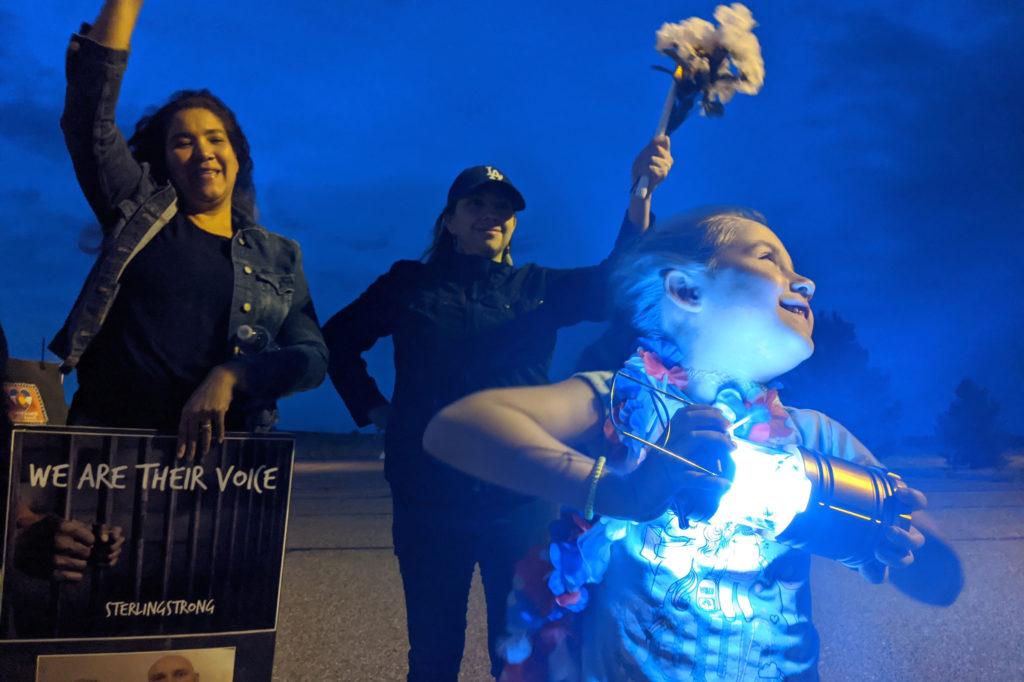
“If he ends up getting COVID-19, there's a good chance that he's not coming home unless it's in a box,” she said.
Farrar briefly thought that could be avoided thanks to an executive order Gov. Jared Polis issued at the start of the pandemic. It was meant to remove medically vulnerable prisoners from facilities and reduce prison populations enough to prevent the worst outbreaks. Farrar thought her husband was a perfect candidate for release, but the state deferred his application.
She’s not holding out much hope at this point. Last month, Polis declined to extend key parts of the order, saying he was confident prisons could protect inmates. He also accused the American Civil Liberties Union of attempting to use the pandemic as “an excuse” to push certain prison reform measures.
Days earlier, the ACLU filed a class-action lawsuit on behalf of Colorado prisoners to force the release of vulnerable inmates. Polis has pledged to fight the legal action.
Farrar sees Polis’ reversal on prisoner release as a political maneuver. Police later arrested one of the inmates released under the executive order on suspicion of killing a woman in Denver. She suspects the governor has put people like her husband at risk in order to save himself from a press scandal.
“How do we know the three people who have died here from COVID-19 could have not died from COVID 19?” she said. “Shame on you. That’s all I can really say to him. Shame on you.”
But Woodbury said the vigil wasn’t about the political tensions circling the prison. She simply wanted to make the people inside feel seen. As protests over police violence draw attention away from the pandemic, she hoped to remind everyone inside Sterling they had not been forgotten.
The lights blinking from the windows proved some had received the message.
“That’s love every time they flip those lights,” she said. “This is like the biggest air hug I’ve ever given somebody.”

